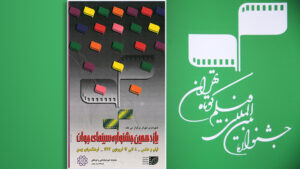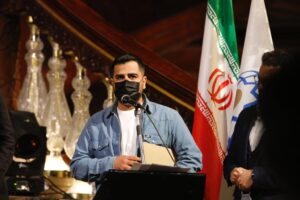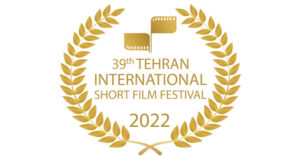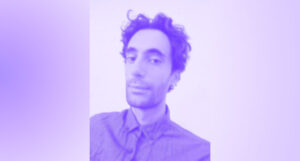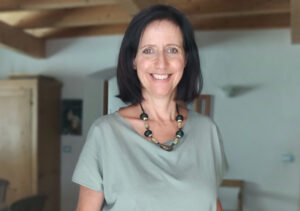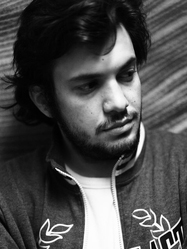According to the International Section of The 38 Theran International short film Festival,
German director Klaus Steinke: What is God’s point of view? We shouldn’t ignore emotions.
The virtual specialized meeting “38-20” with the
presence of a well-known German Director Klaus Stanjek with a focus on
documentary cinema was held in the 38th Tehran International Short
Film Festival at the “Iran Mall” cinema complex.
Steinke, a well-known German documentary filmmaker, said: “Perspective
is also important in a film. This can be used a lot. For those who
find it important to use different points of view, their film works
better as a whole. Another advantage of perspective is that it can be
used to illustrate different ways of dealing with an issue. Two types
of points of view can be considered; The first point of view is the
author’s opinion, which is essentially pervasive and is sometimes
referred to as the “point of view of God.” Even now, with the advent
of drones, we see examples of this viewpoint of the author in the
films, the question that arises is who is this point of view? An
alternative to the author’s point of view is a personal point of
view.”
In another part of this specialized meeting, he said: “Sometimes the
question that arises is, are we allowed to create and produce a
documentary?” In this case, my answer is yes. For example, in the
field of ambiance sounds, sometimes the sounds may be metaphorical,
for example, sometimes the sound of a lion roaring is added to the
sound of an engine, and this sound is metaphorical. Sometimes it is
said that a documentary must be a documentary, but some issues can be
manipulated, but parts of a fact can be copied and shown again. That
is, the creative and reproducible aspects can be used.”
He added: “Of course, we must be aware of the fact that in real life
there are many forgeries, in society we see many people only with
frames and face changes and the distance from reality happens on a
daily basis in all countries, but we must be able to recognize which
professions are false and which are true.
“Some argue that the documentary has to deal with the mere truth,
which is meaningless because it is impossible to reach the full
truth,” Steinke said.
“Of course, this does not mean that the documentarian has nothing to
do with the truth, the goal of the documentarian should be to reach
the truth and get closer to it; this is the job of the documentarian.
Of course, this does not mean that there is no mood in these films;
but the documentarian must be closer to the truth.”
He said: “In the field of directing, we should pay attention to
guiding the audience; In some films, the audience’s attention is open
to the film, but if a strong documentary is to be made, one of the
important points is that the director can control and direct the
audience’s attention. Photography and painting have different
strategies for controlling and directing the viewer’s “attention”, but
in such a way that sometimes the audience can walk in the image and
pay attention to whatever they want. The same thing can happen in a
documentary, the more control the director has over directing the
audience’s attention, the stronger the director’s influence after
watching the film.”
In another part of his speech, the German director stated: “The camera
has several tools such as zoom, trawling, etc., and the purpose of
using these tools is to guide the viewer’s focus.
He also said: “Another point is the structure of the film. The arts
are structured, as is the documentary, which has an internal
structure; The less complex and simple this internal structure is, the
stronger the documentary. The film must be accessible to the audience,
assuming that the internal structure of the documentary is like a
chain or a spiral, the viewer will not be able to access this internal
structure.”
“The next point is the obstacles,” Steinke said.
The experienced documentary filmmaker continued: “The natural flow of
speech in the film is another point; This can be easily understood by
anyone if the speech of the film is very direct and linear, sometimes
it is not good. The natural flow of speech along with the good mixes
contribute to the credibility of a film and make the film more
credible.”
At the end of his speech, he said: “The next point is emotions, and we
should not ignore emotions in making a film. There is an old attitude
towards this issue that some people said that documentary should be
pure and there are emotions in the field of feature films, but I do
not think so.”
Directed by Sadeq Mousavi, the 38th Tehran international short film
the festival opened in Iran Mall Cinema Complex on Oct 19 and will be
wrapped up on Oct 24. This edition of the TISFF has been approved by
the Academy Awards, popularly known as the OSCARS®, and became the
only OSCARS® qualifying festival in Iran is attended by 63 works from
19 countries and 125 directors.
For more details: http://www.tisff.ir/english/english//category/news/

